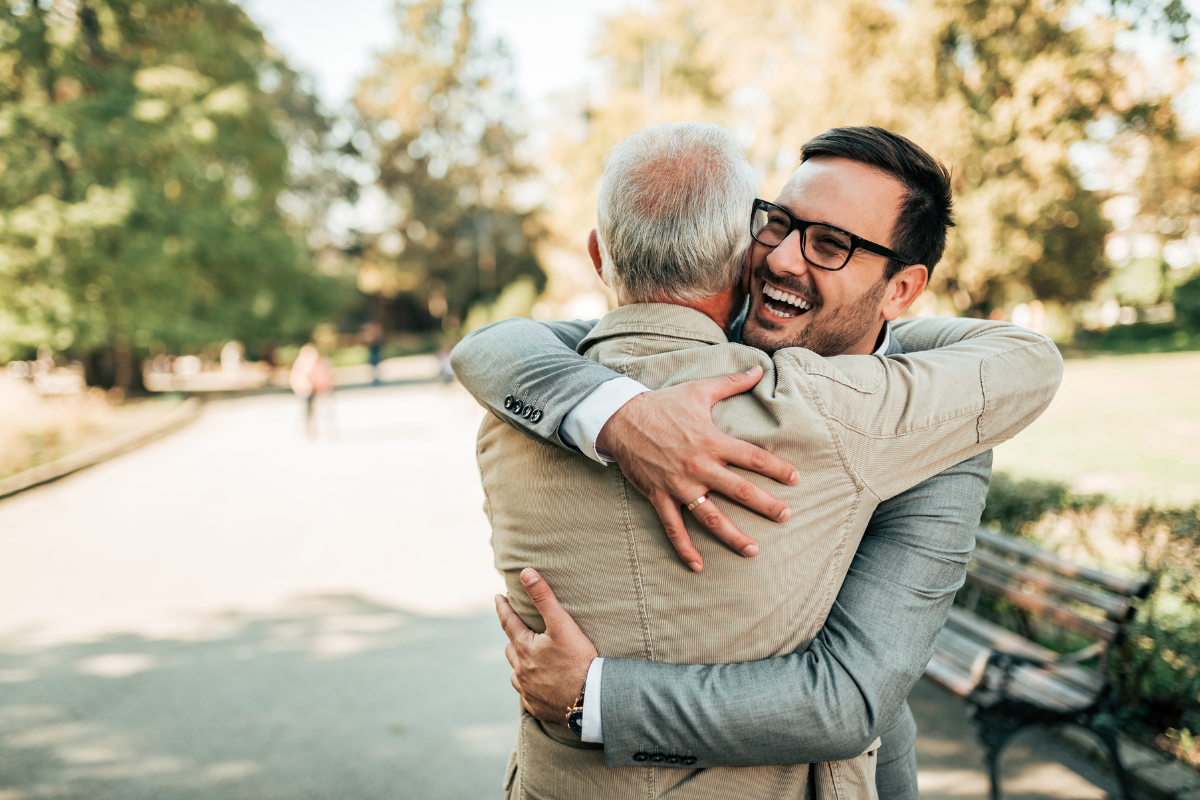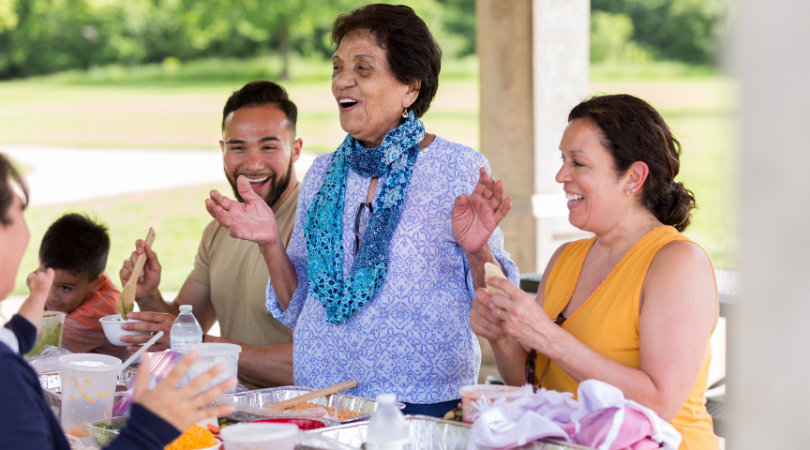What the Vaccine Means for Visiting At-Risk Loved Ones

When the COVID-19 pandemic hit in March 2020, stay-at-home orders swept across the country. As restrictions for many eased, many at-risk individuals remained hunkered down. Now that vaccines are more widely available, it opens up the possibility of visiting older and immunocompromised loved ones.
Individuals are considered to be fully vaccinated two weeks after receiving their second dose of a 2-dose vaccine like Pfizer-BioNTech or Moderna or two weeks after receiving the single dose vaccine from Johnson and Johnson/Jansen.
Even though COVID-19 vaccines provide protection, it’s particularly important to follow CDC recommendations when visiting those who have an increased risk for serious illness from COVID-19.

Recommendations for Fully-Vaccinated Individuals
According to CDC guidelines, fully-vaccinated individuals are now able to:
- Visit with other fully-vaccinated individuals indoors without wearing masks or physical distancing.
- Visit with unvaccinated people from a single household who are at low risk for severe illness from COVID-19 without wearing a mask or maintaining physical distance.
- Join small gatherings outside without wearing a mask.
- Go outside without a mask except in certain crowed settings and venues.
- Refrain from quarantine and testing following a known exposure to COVID-19 if they are not showing symptoms.
- Resume travel within the United States.
- Refrain from quarantine after travel within the United States and testing before or after travel within the United States.
- Refrain from testing before leaving the United States for international travel (unless required by the destination country) and may refrain from self-quarantine after returning to the United States.
Despite the relaxing of requirements, the CDC recommends that fully-vaccinated individuals should still continue to take some additional precautions. These include:
- Wearing a well-fitted mask and maintaining physical distance when indoors in public and in crowded outdoor settings
- Wearing masks, maintaining physical distance, and practicing other prevention measures when visiting unvaccinated people indoors who are at an increased risk for severe COVID-19 disease or who have an unvaccinated household member with an increased risk.
- Wearing masks, maintaining physical distance, and practicing other prevention measures when visiting unvaccinated people from multiple households.
- Avoiding medium-sized and large-sized in-person gatherings.
- Getting tested if experiencing COVID-19 symptoms.
- Following CDC and health department travel requirements and recommendations.
The COVID-19 vaccines have been shown to be effective at preventing COVID-19 and severe illness and death from the disease. Getting the vaccine and continuing to follow CDC best practices makes it possible to safely visit with at-risk loved ones who have also received the vaccine.
Throughout the pandemic, we have helped families stay safe and connected. To learn more about how Crossroads Hospice & Palliative Care supports individuals with serious and terminal illnesses, please call 1-888-564-3405.
If you found this information helpful, please share it with your network and community.
Copyright © 2021 Crossroads Hospice & Palliative Care. All rights reserved.




